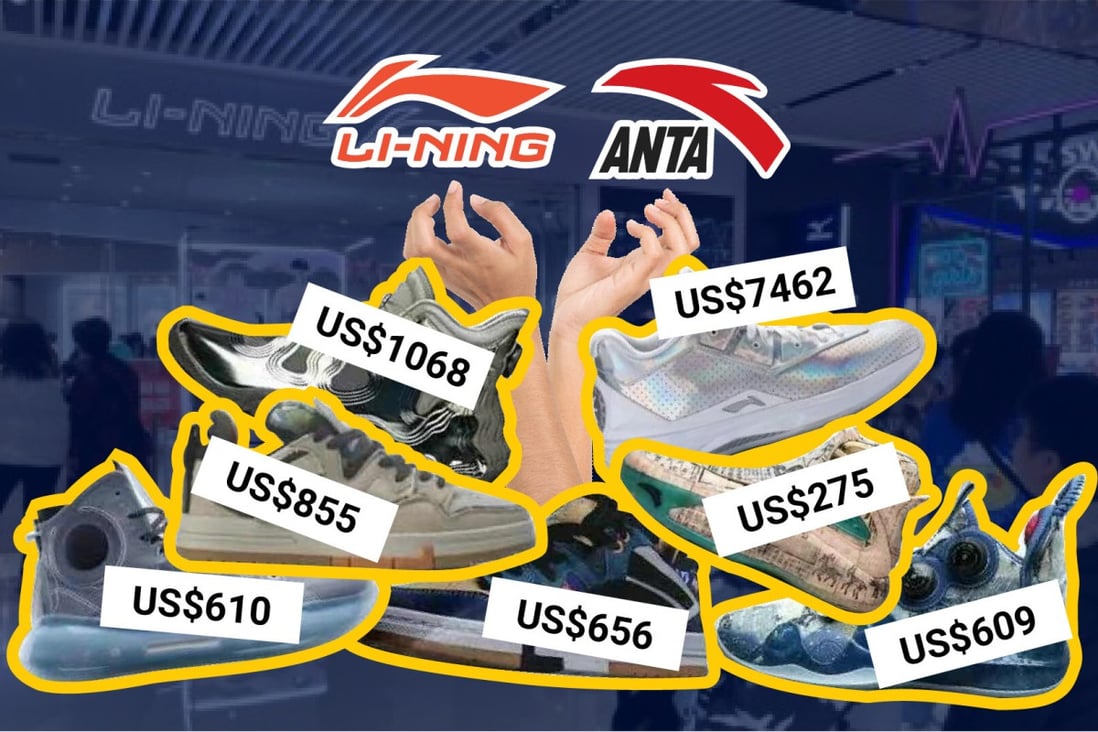
As the leading domestic sportswear brands, Anta Sports and Li-Ning had 15.4 per cent and 6.7 per cent shares respectively of China’s sportswear and athleisure market, according to Euromonitor International, a market research provider. They trailed only Adidas, which has 17.4 per cent of the market, and Nike with 25.6 per cent.
Anta Sports had footwear and apparel sales in China of 34.4 billion yuan (US$5.3 billion) and Li-Ning 13.7 billion in 2020.
Yet while both are ubiquitous in China, they are virtually unheard of beyond its borders – Anta Sports did not report any stores outside mainland China in its 2020 annual report, and only 1.5 per cent of Li-Ning’s revenue last year came from outside the country.
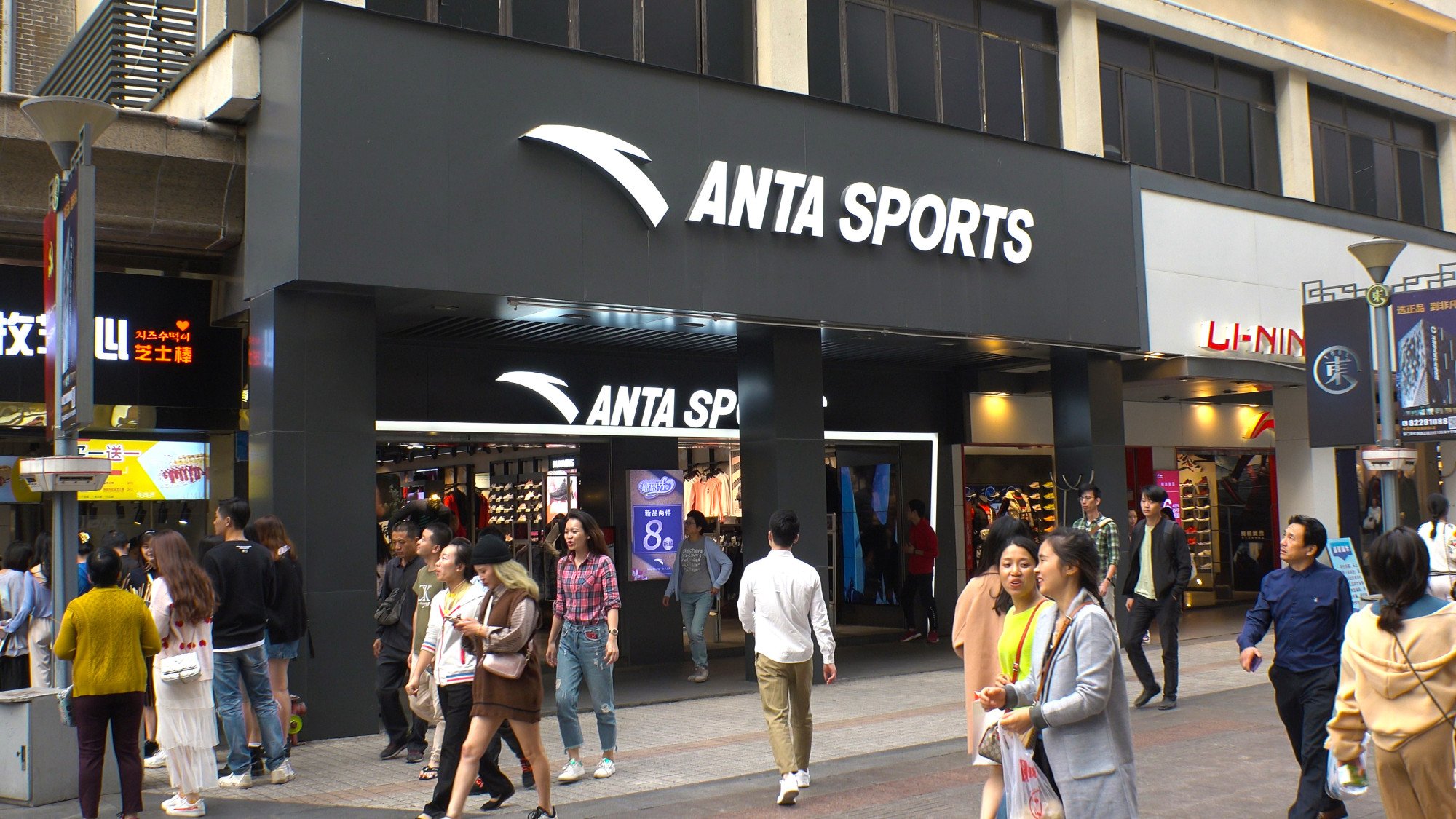
Both brands were launched at around the time a middle class was beginning to emerge in China and urbanites in the country were starting to spend more on sportswear and other lifestyle goods. International brands such as Nike thrived in the wealthier coastal cities, but domestic brands were more popular in the second- and third-tier inland cities.
The Anta Sports brand was created in 1991 and focused on sport shoes. It later expanded into sports apparel. It provided sportswear to Chinese table tennis Olympic medallist Kong Linghui in 1999 and to the Chinese Basketball Association in 2004.
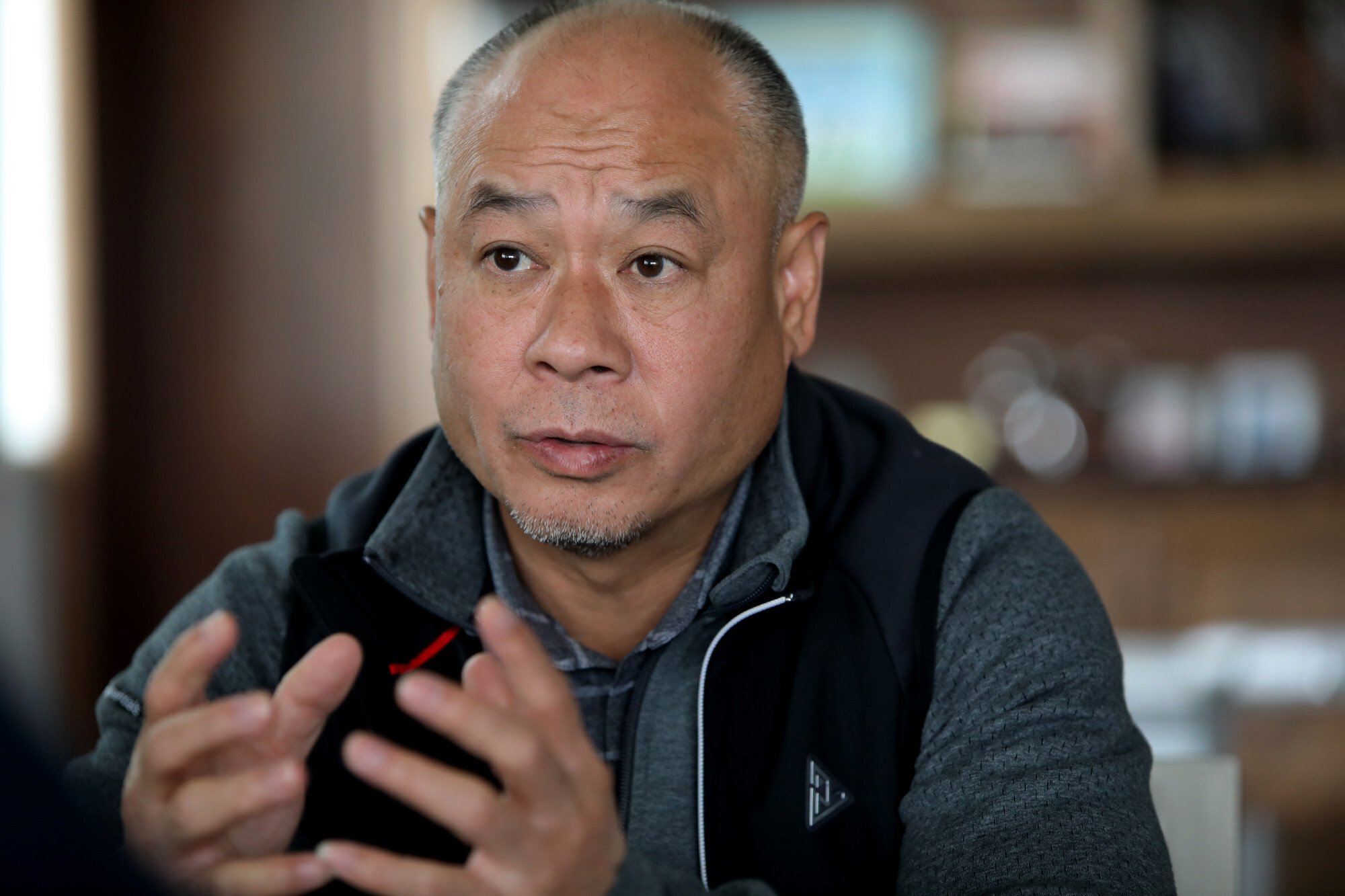
In 2007, Anta Sports earned the endorsement of Argentine basketball player Luis Scola, and in 2009 acquired the right to operate the Fila brand in China.
Both companies used the Games to promote their brands to the world. Li-Ning sponsored the podium uniforms of Team China for the 1992 Barcelona Games, becoming the first Chinese company to do so. It continued to do so for the Chinese Olympic delegation until 2009, when Anta Sports took over.
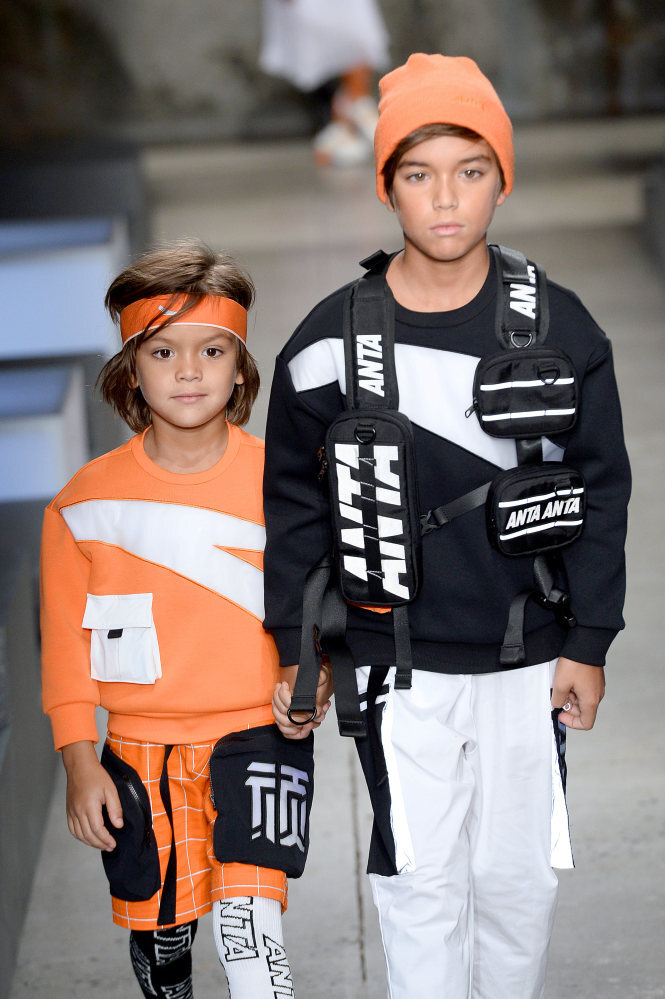
In 2019, child models wearing playful, neon Anta Kids designs walked down the catwalk on New York Fashion Week’s China Day. The various collections were inspired by China’s successes at the Olympics.
The patriotic, hip-hop-inspired Playmaker × Origins collection – part of a collaboration with New York label Opening Ceremony – featured the numbers “84”, representing 1984, the year China won its first Olympic gold medal. Playmaker × Energy, meanwhile, incorporated reflective materials and fibre optics, giving the clothes a futuristic look.
The Playmaker × Glory collection featured the numbers “08”, representing 2008, the year Beijing hosted the Games, and bright reds and whites that echoed the colours the Chinese team wore on the Games podiums. A graphic T-shirt featured the Olympic garland, and a stylised Chinese flag was boldly displayed on a speed skating suit.
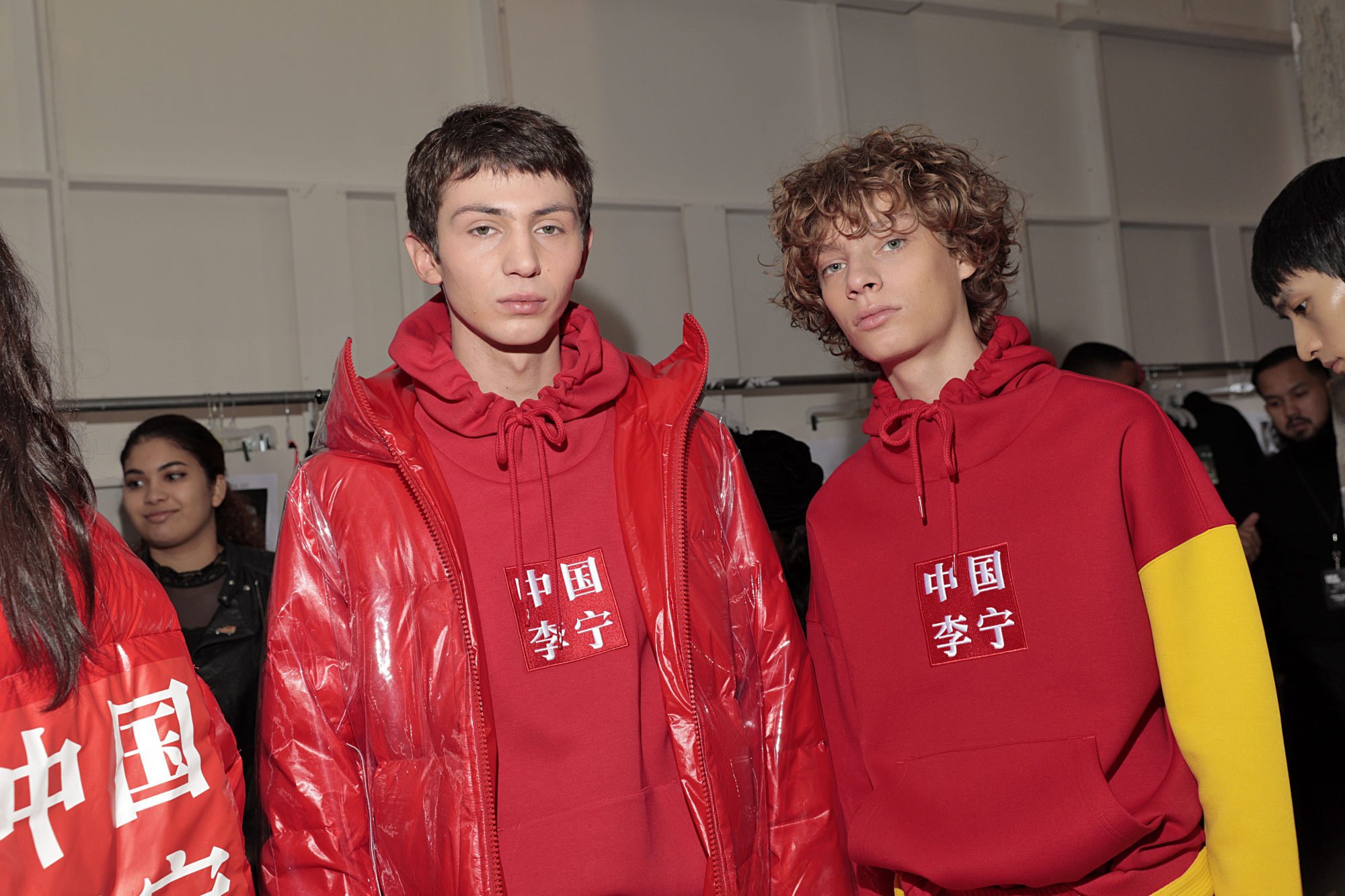
Some of its designs featured sharp reds and yellows and the country’s name in Chinese. The baggy silhouette of the hoodies and bombers was a throwback to 1980s sportswear, in contrast to other designs in its collection, such as edgy, silver and black shell suits.
Even though Li-Ning also showed its collection at Paris Fashion Week debut and Anta Sports continued to show interest in premium fashion, the brands are still notably absent from the consumer market outside China.
Li-Ning opened an office and a store in Portland in the US state of Oregon in 2010, but later withdrew from the US market. In 2019, Anta Sports acquired Amer, the Finnish owner of the more globally recognised Wilson brand, but Amer’s presence under its own brand remains negligible outside Finland.